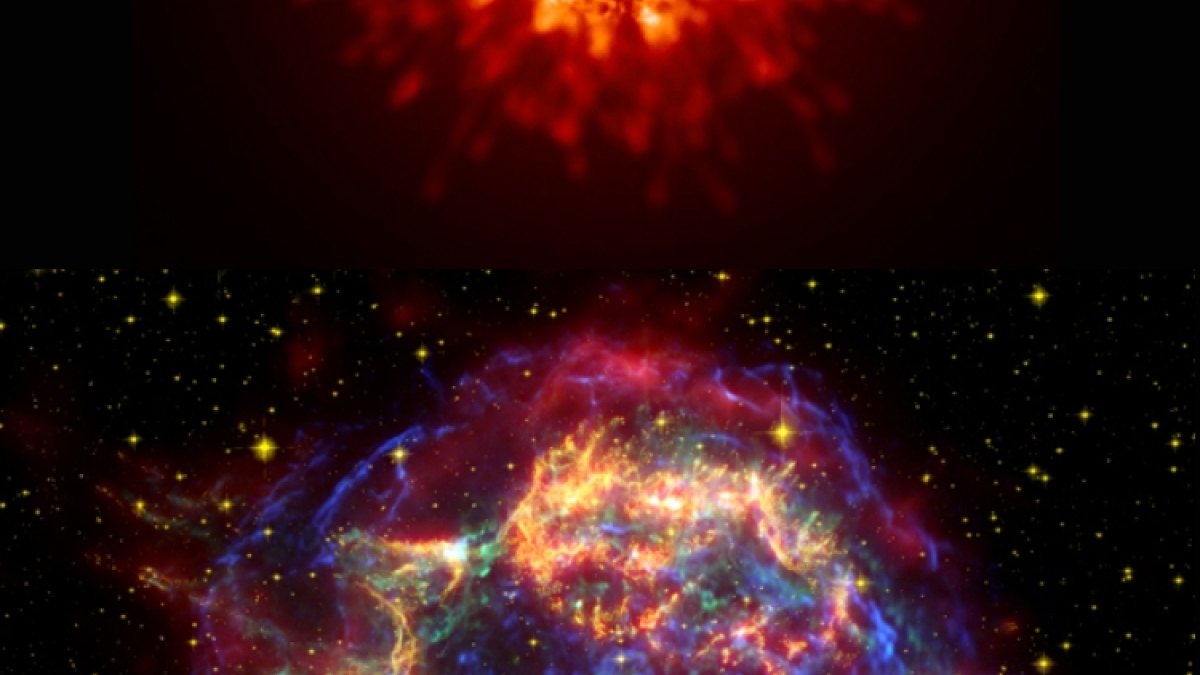'Secret Life of Stars' premieres in 3-D at ASU

Simulation of a bipolar supernova explosion with color corresponding to density (top) and a composite image of the Cassiopeia A supernova remnant from the Hubble Space Telescope, Spitzer Space Telescope, and Chandra X-ray Observatory (bottom). Image credits: Ellinger & Young, ASU (top) and NASA (bottom).
A new 3-D astronomy show, "The Secret Life of Stars," is premiering at Arizona State University's Marston Exploration Theater at the School of Earth and Space Exploration at 7:30 p.m. Jan. 20.
The show takes audiences on a journey through the birth, life and death of stars, exploring white dwarfs, planetary nebulas, supernova explosions, neutron stars, pulsars, and the ultimate fate of massive stars, black holes.
This live-narrated 3-D show will answer questions about where stars come from, how they form, what happens when they die and why humans are made of stardust.
“The Marston Exploration Theater is the next-generation planetarium,” said theater director Ric Alling. “It’s a state-of-the art, 3-D experience combined with live narration.”
The supernova images in the new show were developed by ASU associate professor Patrick Young and feature simulations of supernova explosions performed on the Saguaro supercomputer.
The supercomputer, located on the ASU Tempe campus, is capable of 50 trillion mathematical operations per second.
“ASU is at the cutting edge of simulating how supernovae explode,” Young said. “This is the only place where the public can see the raw data of our simulations and experience supernova explosions in an immersive 3-D environment. It’s pretty dramatic.”
The Marston Exploration Theater is in the school's Interdisciplinary Science and Technology Building 4 (ISTB4) on ASU's Tempe campus. This show will also be featured at 2:30 p.m. Jan. 23. Tickets are $7.50 for adults and $5.50 for students.
For more information about the show, tickets, location and parking, visit sese.asu.edu/public-engagement/3-d-astronomy.
More Science and technology

CSI: Mars
By Wendee NicoleTravelling to Mars has loomed large in the public’s imagination since at least the late 1800s when H.G. Wells' “…

ASU research is helping solve crimes
On TV, detectives solve crimes in 43 minutes (plus commercial breaks). In real life, it takes much more time — and many more…

Compact X-ray laser lab aims to reveal deep secrets of life, matter and energy
X-rays allow us to view inside the human body to diagnose broken bones and other hidden problems. More recent X-ray advances are…

